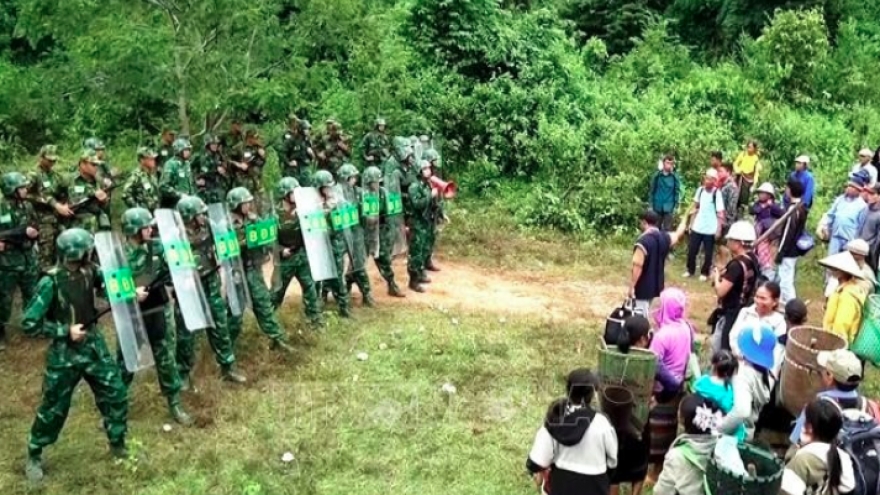Seminar debates peaceful settlement of territorial, border disputes
An international seminar on resolving territorial border disputes in a changing world was held by the Ministry of Foreign Affairs' National Boundary Commission in Hanoi on October 21, gathering leading international law experts along with representatives from Vietnamese government agencies, research institutes, and universities.

In his opening remarks, Permanent Deputy Foreign Minister Nguyen Minh Vu highlighted the crucial importance of maintaining peace and stability and settling territorial and border disputes through peaceful measures based on international law in the context of non-traditional security challenges, such as climate change and emerging technologies.
He affirmed that the border is not only the endpoint of one country but also the starting point of another country, serving as a bridge for cooperation and development between nations.
Experts and scholars from France, Singapore, India, Belgium, Canada, Australia, the US, the Republic of Korea (RoK), and Vietnam discussed legal and practical issues in resolving border and territorial disputes; the impact of climate change and new technologies on international legal frameworks on land and sea borders; and the role of international cooperation in managing and handling these challenges.
There are various mechanisms and measures available to address border and territorial disputes, but they must comply with international law, scholars said, noting that Vietnam has stood out as a model for effectively resolving border and territorial matters in recent times.
Regarding the role of emerging technologies in managing and resolving border and territorial disputes, experts noted that many legal issues remain concerning the use of monitoring and data collection devices in land border areas and maritime zones under the sovereignty and sovereign rights of coastal states. Delegates also shared experience in border security management, suggesting that instead of using maritime identification systems as tools of restraint or competition among nations, these technologies should be leveraged to promote international cooperation in maritime governance.
Scholars said that climate change, particularly sea-level rise, not only affects baselines and maritime boundaries established under the UN Convention on the Law of the Sea (UNCLOS) 1982 but also poses legal challenges for some small island nations whose territories could be completely submerged.
This situation requires the international community to soon reach a consensus on ensuring legal stability of declared baselines and maritime boundaries to prevent new disputes from arising, they noted.
Many participants emphasised the importance of applying provisional arrangements under Articles 74 and 83 of UNCLOS during the delimitation of exclusive economic zones and continental shelves between countries with overlapping claims, to maintain peace and stability while facilitating the conclusion of final agreements.
This approach also aligns with the ongoing negotiations on the Code of Conduct in the East Sea (COC), contributing to building confidence, enhancing cooperation, and preventing conflicts at sea.
Trinh Duc Hai, Chairman of the National Boundary Commission, stressed that the event not only shed light on the legal and practical aspects of resolving territorial and border issues but also suggested appropriate and effective solutions.
He called for perseverance, determination, and unified cooperation from the entire international community, with respect for international law as the key factor, to address border and territorial disputes.
The seminar was held as part of the celebration of the 50th founding anniversary of the National Boundary Commission (1975–2025), reaffirming its key role in establishing, managing, and firmly safeguarding Vietnam’s independence, sovereignty, and territorial integrity, contributing to peace, stability, and sustainable development in the region and the world.




